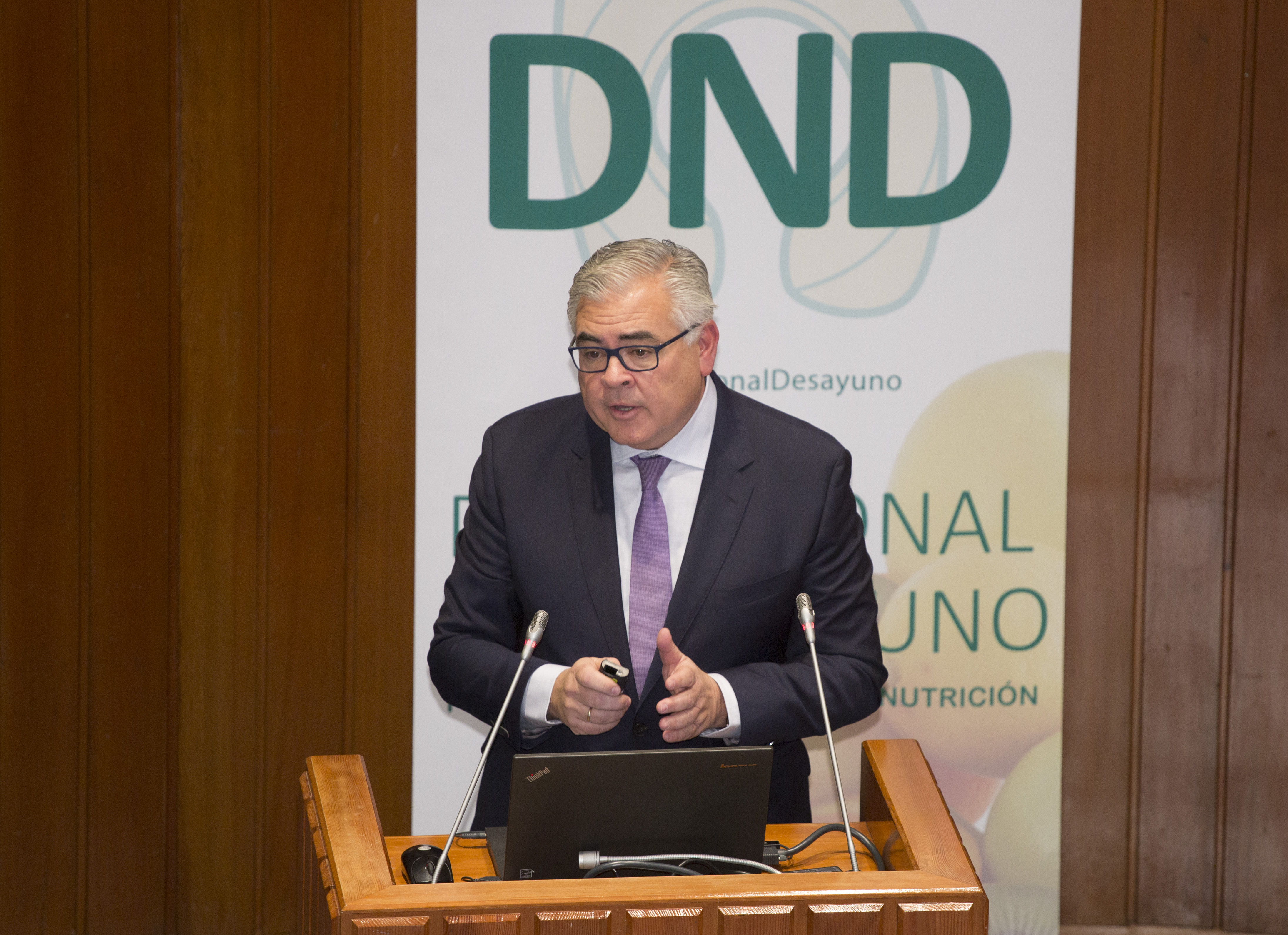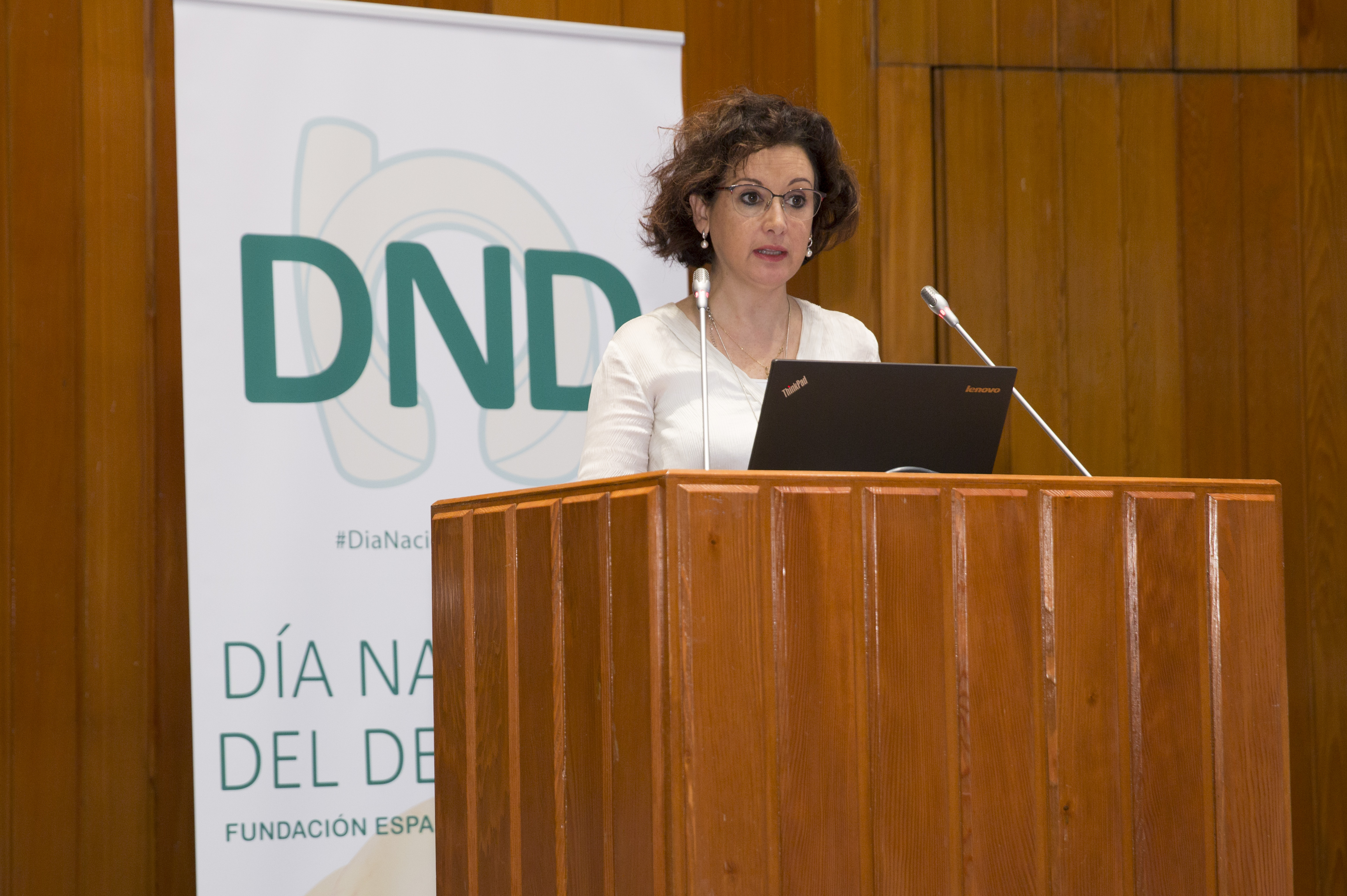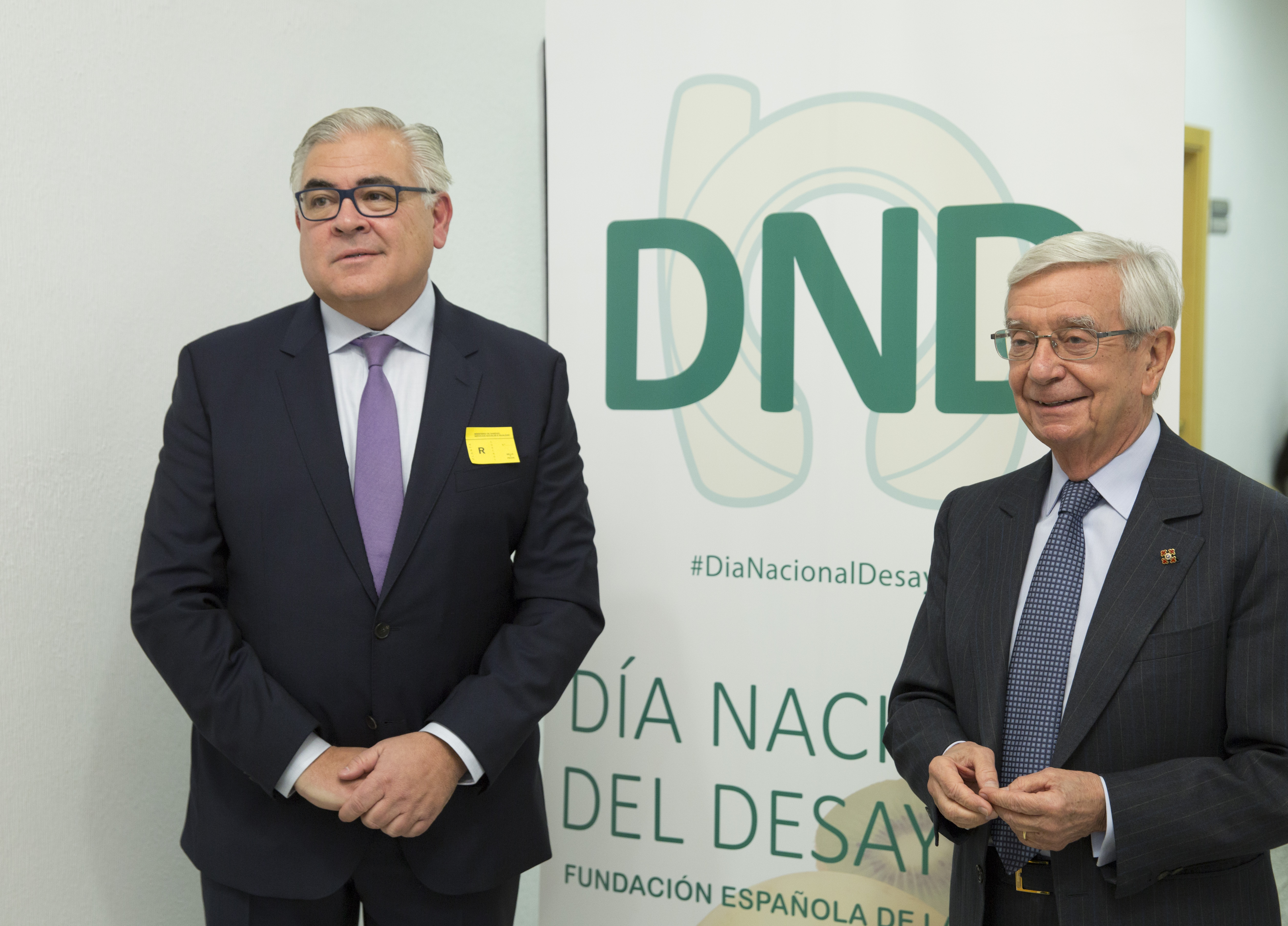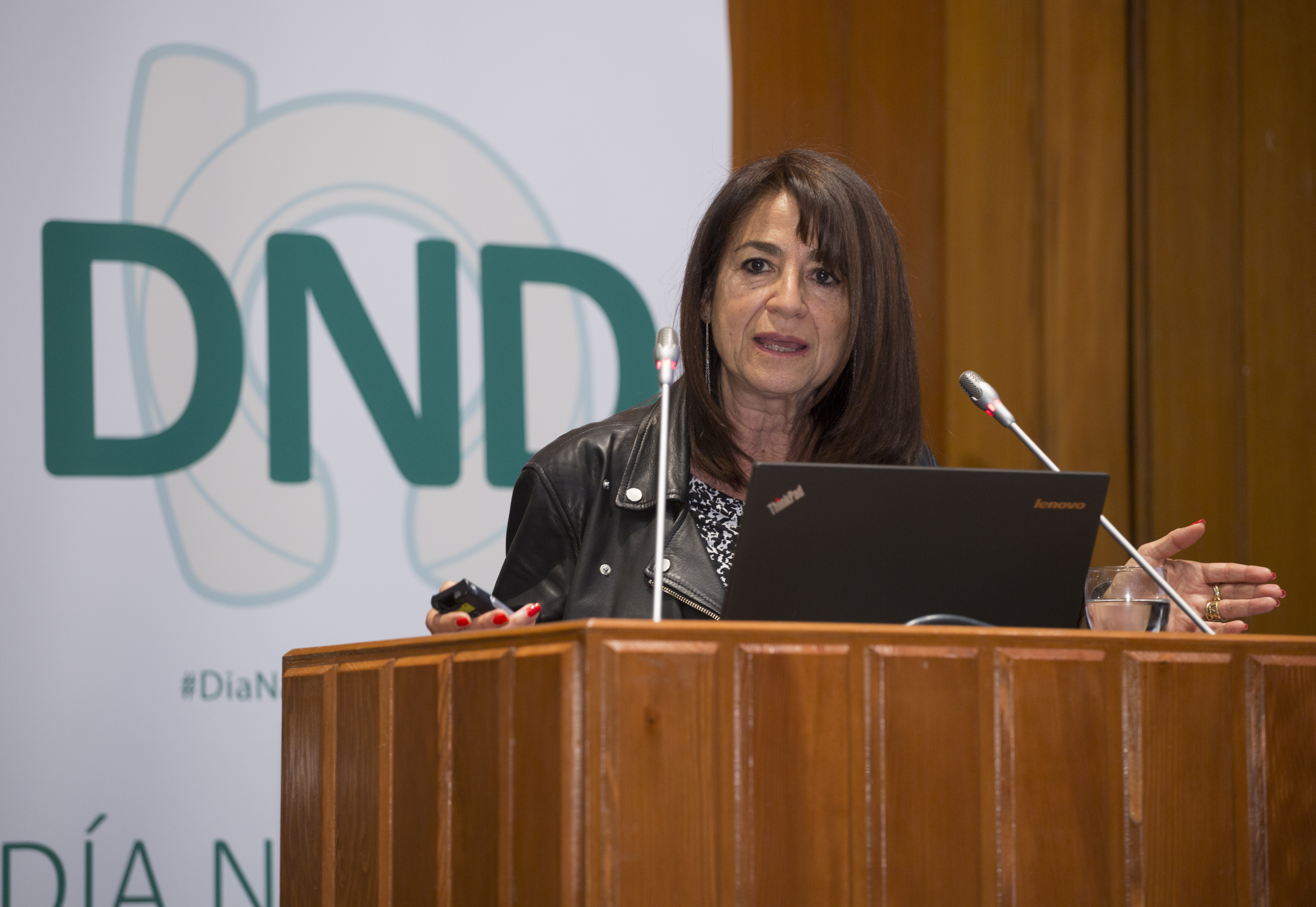Experts in nutrition and gastronomy present the report ‘Status report on breakfast in Spain’
Post: Agencia española de Consumo, Seguridad alimentaria y Nutrición
Date: 13 febrero 2018
Section: Nutrición

- Breakfast, as the first meal of the day, is considered one of the most important intakes, as it helps to reorganise the metabolic changes occurring during the night
- It provides energy and the nutrients that the body needs to start the day and usually includes the first liquid of the day, helping to maintain the correct levels of hydration
- For a breakfast to be complete, it should provide between 20-25% of the daily energy requirements and include at least three groups of food.
- According to this report, 25% of the population have a complete breakfast, 37% have an acceptable breakfast and 38% have an incomplete breakfast
Today is National Breakfast Day (DND), an initiative promoted by the Spanish Nutrition Foundation (FEN). It is held every year on 13 February and the collaborating bodies include the Spanish Agency for Consumer Affairs, Food Safety and Nutrition (AECOSAN-MSSSI), the Ministry of Agriculture and Fisheries, Food and the Environment (MAPAMA), the National Centre for Educational Research and Innovation of the Ministry of Education, Culture and Sport (CNIIE-MECD), the Spanish Federation of Nutrition, Food and Dietetics Societies (FESNAD) and the Royal Gastronomy Academy (RAG).
In the opinion of the experts on nutrition and gastronomy gathered here today during the presentation of the report ‘Status report on breakfast in Spain’ at the Ministry of Health, Social Services and Equality (MSSSI), breakfast, as the first meal of the day, is considered as one of the most important intakes as it helps to reorganise the metabolic changes occurring during the night,
it provides energy and the nutrients that the body needs to start the day after hours of fasting and, on many occasions, it includes the first liquid of the day, helping to maintain the correct levels of hydration.
According to Prof. Gregorio Varela Moreiras, President of the Spanish Nutrition Foundation (FEN) and Professor of Nutrition and Nutritional Science at the CEU San Pablo University “, for a breakfast to be complete it should provide between 20-25% of the daily energy requirement, and include at least three basic food groups, such as milk and milk derivatives, cereals and cereal derivatives and fruit, He recommends it is supplemented by a fourth group which includes foods such as extra virgin olive oil, tomato, butter, dried fruit and nuts, eggs, ham, coffee, honey, jam, pulses, etc.” In his opinion, “It is not merely the fact of having breakfast that is important, but the composition and presentation must also be considered”.
According to the Executive Director of the AECOSAN Teresa Robledo “the promotion of health for everyone throughout their life cycle, with the objective of slowing and reversing obesity, preventing non-communicable diseases and reducing inequalities in health, is a priority for the Ministry of Health.
It is also a priority which coincides with the lines of action proposed from the European institutions in the EU Action Plan on Childhood Obesity 2014-2020 and from the European Region of the World Health Organisation, in their European Plan of Action on Nutrition and Diet Policies 2015-2020. In these plans, the promotion of a healthy diet throughout the life cycle is a key factor, and in this context, the promotion of a healthy breakfast from a very early age is vital. Breakfast provides the foundations for a good diet and therefore is of benefit to our health.”
Ms Robledo also highlighted the “COLLABORATION PLAN FOR THE IMPROVEMENT OF THE COMPOSITION OF FOOD AND BEVERAGES AND OTHER MEASURES 2017-2020, presented by the Minister for Health on 5 February, under the slogan: working together for a more balanced and healthier diet. A result of a joint effort with the manufacturing, distribution, industrial catering, restaurant and vending machine sectors”.
Breakfast in Spain
Nowadays, social changes and new lifestyles, in short, lack of time, have led to a tendency towards lighter, nutritionally incomplete breakfasts with little variety or even the omission of breakfast altogether. This leads to a time distribution of unbalanced meals, with possible negative repercussions on the nutritional state and, consequently, on health.
According to the latest data from the National Survey on Health in Spain 2011/2012 (ENSE), conducted by the Ministry of Health, Social Services and Equality in collaboration with the National Institute Statistics (INE), which collects health information on the population resident in Spain in 21,508 households, 12.24% of Spanish people only drink a liquid (coffee, milk, tea, chocolate or cocoa, yoghurt, etc. -excluding juices -) at breakfast; 1.74% drink a liquid and eat some fruit (including juices); 57.64% some liquid and bread, toast, biscuits, cereals or cakes; 9.71% some liquid and fruit or juices and bread, toast, biscuits, cereals or cakes and 15.31% had a different breakfast. 3.36% of the population do not usually have breakfast.
In the Study to Monitor Growth, Nutrition, Physical Activity, Child Development and Obesity in Spain - ALADINO 20155, conducted through the AECOSAN and the NAOS Strategy on 10,899 schoolchildren aged between 6 and 9 years old, the most frequently eaten breakfast (49.7% of the study population) consisted of a dairy product (milk, milkshake, dairy product or yoghurt) and a food from the cereal group (biscuits, breakfast cereals or bread/toast). 3.3% indicated that they had eaten a dairy product with a pastry for breakfast and only 2.8% had eaten a quality breakfast, where this is considered to include at least three food groups (dairy product+ cereal + fruit). When the families were asked, only 0.5% said that the schoolchild never ate breakfast.
According to the ANIBES scientific study, coordinated by the Spanish Nutrition Foundation, representative of the Spanish population (9–75 years old), 25% of the population ate a complete breakfast, 37% an acceptable breakfast and 38% an incomplete breakfast. The “incomplete” breakfast is prevalent in all age groups, mainly in adults at 39%, followed by adolescents and older adults, at 35%, and to a lesser extent in children at 22%. The children's group is the group with the highest percentage of “acceptable” breakfasts at 54%, but the lowest percentage of “complete” breakfasts (24%) compared to other population groups. A complete breakfast, according to the methodology of the ANIBES Study, is characterised by providing sufficient energy and variety (≥ 20% of the total daily energy required and ≥3 food groups).
In relation to breakfast habits, the report shows that the average length taken to eat breakfast is 11.2 minutes (10.8 minutes on work days and 12.1 minutes at weekends).
The place where breakfast is eaten and the company also vary according to the age group and day of the week. Children usually breakfast at home with the family. Teenagers start to breakfast more often in institutions or cafés, often eating breakfast alone.
In the case of adults (18-65 year-olds), 88% have breakfast at home on work days, and almost half the time alone. For the 12% who have breakfast away from home on work days (in cafés and institutions), Prof. Varela Moreiras believes that “the consumption of fresh fruit should be increased, with a greater and more attractive offer in canteens and commercial restaurants”.
Contribution of breakfast to the recommended nutritional intakes
Breakfast contributes to meeting the recommended nutritional requirements. According to the report, the average intake from breakfast is 296±24 kcal/day (310±28 kcal/day in males and 283±20 kcal/day in females), equivalent to approximately 16.7% of the total energy consumed each day (16.1% in males and 17.3% in females), but without reaching the recommendations. With respect to the calorific value of breakfast, a higher energy input is observed in children and adolescents due to the added sugars and saturated fatty acids. To the contrary, for the group of older adults, a higher energy intake is observed due to complex carbohydrates (starches) and mono-unsaturated fatty acids.
With respect to the micronutrients, breakfast provides approximately 40% of calcium, iodine and vitamin B2 of the total dietary intake per day and up to 30% of vitamins such as B9, and minerals such as magnesium, phosphorus and potassium.
A healthy breakfast
A healthy breakfast is one which is varied, complete, balanced and satisfactory. According to Prof. Varela Moreiras “it is not possible to say that the perfect breakfast exists, but there are a multitude of combinations which should adapt to the needs and circumstances of each individual and their environment”. In his opinion “the food and the presentation should be varied, just as we do with lunch and dinner. In this way, the monotony is broken and we are able to enjoy our breakfasts better”. In short, breakfast is a good occasion to include groups of food which must not be lacking in our diet and to complete the number of portions of different groups which we would not cover in the rest of the day. For the expert, it is important to highlight that breakfast can also enhance the socialisation of the family unit.
Which foods should form part of a complete breakfast?
Breakfast should include at least three food groups and be supplemented by a fourth group, as the combination of all of these provides the body with complex carbohydrates, fibre, protein, water and an adequate amount of fat, while also contributing to meeting the vitamin and mineral requirements, without forgetting the presence of bioactive compounds of huge nutritional interest.
Milk and milk derivatives (yoghurt, cheese, etc.). Dairy products provide a high content of nutrients in proportion to their calorific value. They provide proteins of high biological value, fat, carbohydrates, liposoluble vitamins (in whole milks), phosphorus and calcium, where this last is very easily absorbed. In the case of skimmed or semi-skimmed dairy products, these should be enriched with liposoluble vitamins. For individuals who are intolerant of lactose, allergic to milk protein or who are vegans, other foods should be selected which can nutritionally replace the dairy products, or choose lactose free milk or milk with a low lactose content.
Cereals and cereal derivatives (bread, biscuits, home-made cakes, cereal flakes, etc.). Cereals mainly provide complex carbohydrates, some protein and little fat. They also provide vitamins from the B group and minerals. Wholegrain cereals, in addition, provide insoluble fibre, which helps to reach the recommended daily intake of 25 g of fibre. It is important to highlight that the selected cereals should be wholegrain and unsweetened in the case of the so-called breakfast cereals. Breakfast for individuals with celiac disease may include gluten-free bread, biscuits, home-made cakes or cereal flakes, which replace the wheat derivatives, or corn and rice products which are naturally gluten-free. However the labelling should always be read.
Fruit (fresh fruit, milk-shakes and fresh fruit juices). It is essential to eat fruit to obtain a balanced, varied and nutritious diet. In general, fruit mainly provides carbohydrates, fibre, hydrosoluble vitamins (especially A and C) and minerals (including potassium and phosphorus). In addition, the energy content, although variable, should be considered as low-moderate. Recommendations for the intake of fruit are for a minimum of three portions per day. The presence of fruit at breakfast helps to meet these recommendations. In addition, fruit has a high water content, helping to achieve an optimum level of hydration. In order to consume all their components, ideally the fruit should be eaten fresh and whole, as a large part of the fibre and vitamins in the original piece of fruit are lost when liquidised or squeezed.
In addition to the three basic groups for breakfast, other foods can be used to supplement the breakfast (extra virgin olive oil, tomato, dried fruit and nuts, eggs, ham, butter, coffee, honey, jam, pulses, etc.). The chosen food should be different to the previous food and it is not necessary to eat a whole portion. The food from this group adds variety to our breakfast and may help to balance the daily intake.
The report “Status report on breakfast in Spain’ also includes a recipe book for preparing healthy breakfasts.








